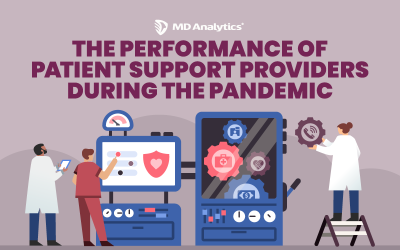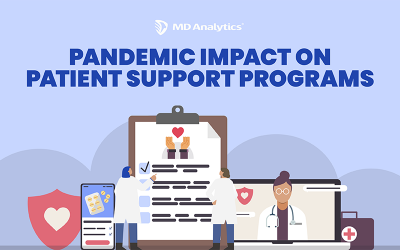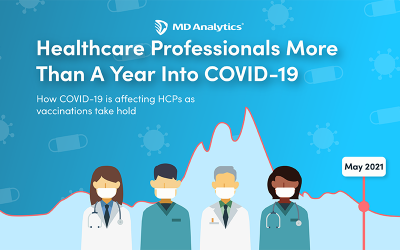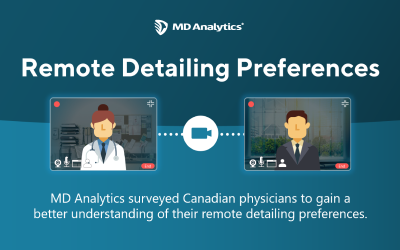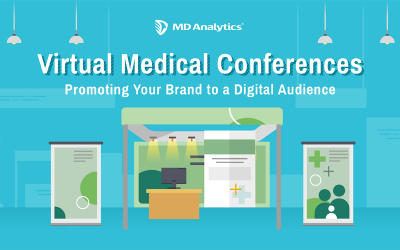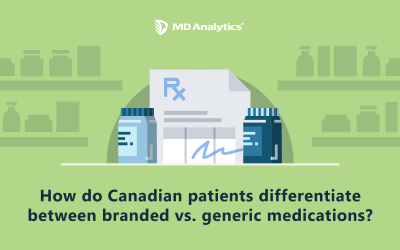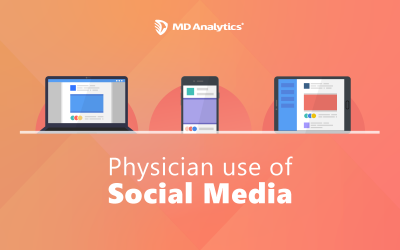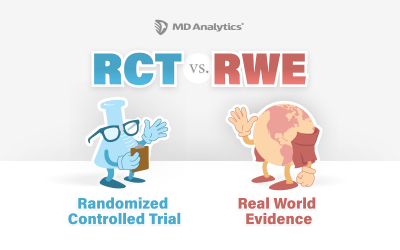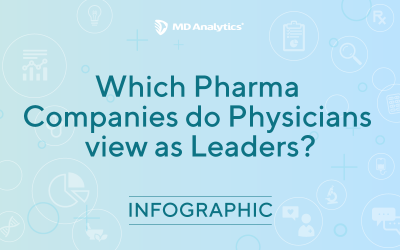We surveyed 152 physicians in the U.S. to gauge their opinions on Patient Support Program (PSPs) providers during the pandemic. Physicians surveyed include GPs, Hematologists, Medical Oncologists, Rheumatologists, Pulmonologists, Endocrinologists and Infectious Disease Specialists. Overall perceptions of PSPs compared to before the pandemic have generally improved – especially in terms of responsiveness and the expertise of individuals working on PSPs.

Tyler Hassman, CEO
Pandemic Impact On Patient Support Programs
PSPs play a significant role in ensuring that patients have the best possible experience during their journey – especially in specialty therapeutic areas where treatments tend to be more expensive. The pandemic has made it more challenging for patients to access support and services for their medical conditions. This has put additional pressure on company-sponsored PSPs to further enhance their offerings to help patients in the best way possible.
PSPs have become increasingly important for patients since the onset of the COVID-19 pandemic and as a result now have an even more significant influence on physicians’ treatment selection process. For the most part, physicians acknowledge that PSP providers have adjusted well to the new reality brought forth by COVID-19. About a third even think that PSP providers have improved their performance since the onset of the pandemic.
In-person Interactions With Pharma Will Return
While the vaccination campaign in the U.S. is progressing, COVID-19 continues to significantly impact healthcare practices. As knowledge about the virus evolved during the pandemic, physicians and other HCPs have continuously adapted how they manage their patients and how they interact with key stakeholders. Half of the physicians surveyed expect to see increased workloads as 2021 draws to a close. Patient volumes continue to inch closer to pre-pandemic levels and requests for diagnostic testing along with treatment switches have now exceeded pre-pandemic levels.
MD Analytics has been monitoring these trends and we are excited to share with you our new downloadable infographic on this topic.
How COVID-19 is affecting HCPs as vaccinations take hold
As the COVID-19 vaccination campaign ramped up in the Spring, and rates of infection dropped, a return to normality appeared to be on the horizon. However, with widespread vaccine hesitancy paired with the virulent spread of the delta variant, we are once again left with an uncertain view of the future.
Throughout the past year, MD Analytics has been monitoring the effects of this uncertainty, and the pandemic in general, on the practices and perceptions of HCPs. Ongoing changes in workloads, patient assessments, and interactions with pharma have had direct and meaningful impact on the healthcare industry.
Remote detailing for pharma – Physicians’ perspectives
The detailing of healthcare providers through virtual means has become a staple for pharmaceutical brands and is essential for any go-to-market strategy. When face-to-face detailing was put on hold this past year, healthcare providers began experiencing an even greater volume of requests for virtual interactions. For pharma brand teams, ensuring your approach to digital communications matches with the preferences of providers is important in helping your messages get through to your target prescribers.
In our latest quick poll, conducted in March 2021, MD Analytics sought to gain clarity around current remote detailing preferences and identify the components of an “ideal” remote interaction.
The Future of Medical Conferences is Virtual
Each year, providers and health industry professionals travel from locations around the world to share and discuss the latest developments in medical care. For several years now, conferences have been experimenting with digital features that allow participants to engage remotely, avoiding the burdens of travel. However, the scope of content available to digital participants had often been limited and physician adoption was low.
Understanding Patient Influence on Disease Management and Treatment Options
Patients are an increasingly influential stakeholder within the healthcare industry as more medical information becomes available online than ever before. This independent market research study conducted by MD Analytics takes a closer look at patients in order to better understand their motivations and predict their behaviours within this complex landscape.
Physician Use of Social Media
Physicians are using social media in their personal and professional lives, especially younger physicians. However, the pharma industry should be aware of barriers to using social media as a means of interacting professionally with physicians, such as the perceived reliability of online information.
Real World Evidence – Does it influence prescribing decisions?
Real World Evidence (RWE) is a growing area of research that, pivoting from the rigorously controlled standards of randomized controlled trials (RCT), is based on a model driven by real world patient data. Real World Evidence stems primarily from an observational analysis of a sample in a less controlled environment. Focused on the efficacy and outcomes of therapies in a real world setting, RWE provides a unique lens not attainable from traditional clinical trial research.
Which Pharmaceutical Companies are Seen as Leaders?
Corporate reputation plays an important role in enabling companies to further differentiate their products in highly competitive markets. As a result our team sought to better understand how pharmaceutical manufacturers are currently perceived. After surveying Canadian GPs, we noticed several trends.
